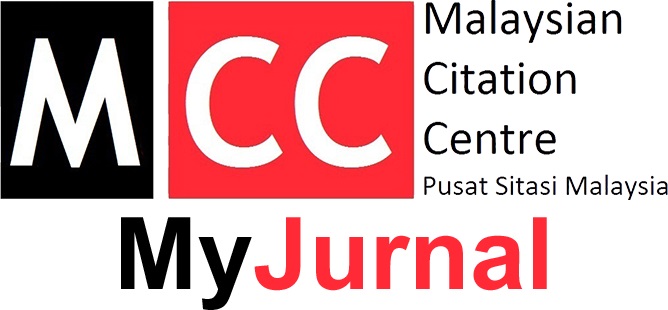SPEECH ACTS AND PHRASES OF KNOWLEDGE CONSTRUCTION IN ASYNCHORONOUS DISCOURSE
Keywords:
Asynchronous Online Communication, Online Information Sharing, Phases of Information SharingAbstract
This paper presents the findings of a study conducted in Malaysia pertaining to the speech
acts commonly used for information sharing in web-forums. Data was purposively selected
from online forums to answer the research questions. The messages in the data were
categorised based on Searle’s (1976) Speech Acts taxonomy to explore the interactive
language function of the messages. The study found that online forum members used more
speech acts that were categorised as assertive in their web-forum interaction. The study also
revealed different phases of knowledge construction were also present in the messages posted
in web-forums. The findings of this study hopes to aid educators and academicians in the
pedagogical aspect in using online discussion forums in the teaching and learning process.
References
Akayoglu, S., & Altun, A. (2009). The Functions of Negotiation of Meaning in TextBased CMC. In Handbook of Research on ELearning Methodologies for
Language Acquisition (pp. 291–306). IGI Global. Retrieved from
http://www.mendeley.com/research/functions-negotiation-meaning-text-basedcmc/
Ewald, J. D. (2012). “ Can You Tell Me How to Get There ?”: Naturally-occuring
Versus Role-Play Data In Direction-giving. International Pragmatics
Association, 102, 79–102.
Fitzpatrick, N., & Donnelly, R. (2010). Do You See What I Mean ? ComputerMediated Discourse Analysis Do You See What I Mean ? Computer- mediated
Discourse Analysis (pp. 0–17). IGI Global. http://doi.org/10.4018/978-1-61520-
-1.ch004
Herring, S. C. (1999). Computer-Mediated Discourse. Journal of Computer-Mediated
Communication 4(4), pp: 0-0. Blackwell Publishing Ltd.
http://doi:10.1111/j.1083- 6101.1999.tb00106.x
Herring, S. C. (2004). Content Analysis for New Media : Rethinking the Paradigm. In
New Research for New Media: Innovative Research Methodologies Symposium
Working Papers and Reading (pp. 47–66). Bloomington.
http://doi.org/10.1177/1461444804039906
Lucas, M., Gunawardena, C., & Moreira, A. (2013). Assessing social construction of
knowledge online: A critique of the interaction analysis model. Computers in
Human Behavior. http://doi.org/10.1016/j.chb.2013.07.050
Means, B., Toyama, Y., Murphy, R., Bakia, M., & Jones, K. (2009). Evaluation of
Evidence-Based Practices in Online Learning. Structure, 15(20), 94. Retrieved
from http://newrepo.alt.ac.uk/629/
Paolillo, J. C. (2011). “ Conversational ” Codeswitching on Usenet and Internet Relay
Chat. Language@Internet, 8, article 3.
Paulus, T. M., & Phipps, G. (2008). Approaches to case analyses in synchronous and
asynchronous environments. Journal of Computer-Mediated Communication,
(2), 459–484. http://doi.org/10.1111/j.1083-6101.2008.00405.x
Pena-Shaff, J. B., & Nicholls, C. (2004). Analyzing student interactions and meaningconstruction in computer bulletin board discussions. Computers & Education,
(3), 243–265. http://doi.org/10.1016/j.compedu.2003.08.003
Potter, J., & Wetherell, M. (1987). Discourse and Social Psychology (1st ed.).
London: SAGE Publications Ltd.
Searle, J. R. (1976). A classification of illocutionary acts ’. Language in Society, 5(1),
–23.
Shanthi, A. (2017). Interactivity and Online Guanxi in Web-Forums in Malaysia.
Universiti Malaysia Sabah.
Shanthi, A., Lee, K. wah, Lajium, D., & Thayalan, X. (2016). Mining Malaysian
Board forums for asynchronous communication. In F. L. Gaol & F. Hutagalung
(Eds.), Economics, Social Sciences and Information Management (pp. 117–123).
London: Taylor & Francis Group.
Thanasingam, S., Kit, S., & Soong, A. (2007). Interaction patterns and knowledge
construction using synchronous discussion forums and video to develop oral
skills. In ascilite Singapore 2007 (pp. 1002–1008).
Thayalan, X., & Shanthi, A. (2011). Qualitative Assessment of Social Presence in
Online Forums. In IEEE Colloquium on Humanities, Science and Engineering
research (pp. 438–440).
Wang, H. (2005). A Qualitative Exploration of the Social Interaction in an Online
Learning Community Haidong Wang. International Journal of Technology in
Teaching and Learning, 1(2), 79–88.
Wertz, F. J., Charmaz, K., McMullen, L. M., Josselson, R., Anderson, R., &
McSpadden, E. (2011). Five Ways of Doing Qualitative Analysis:
Phenomenological Psychology, Grounded Theory, Discourse Analysis, Narrative
Research, and Intuitive Inquiry. New York: The Guilford Press.
Wodak, R. (2008). Introduction: Discourse Studies-Important Concepts and Term. In
R. Wodak & M. Krzyzanowski (Eds.), Qualitative Discourse Analysis in the
Social Sciences (1st ed., pp. 1–24). New York: Palgrave Macmillan.
Zhao, J., & Jiang, Y. (2010). Knowledge Construction through Discussion Forum. In
P. Tsang, K. S. S. Cheung, & S. K. V. Lee (Eds.), Third International
Conference, ICHL 2010 (pp. 395–406). Beijing, China,: Springer.
Ziegler, M. F., Paulus, T., & Woodside, M. (2014). Understanding Informal Group
Learning in Online Communities Through Discourse Analysis. Adult Education
Quarterly, 64(1), 60–78. http://doi.org/10.1177/0741713613509682
Downloads
Published
Issue
Section
License
Copyright (c) 2017 Journal of Academia

This work is licensed under a Creative Commons Attribution-NonCommercial-NoDerivatives 4.0 International License.











